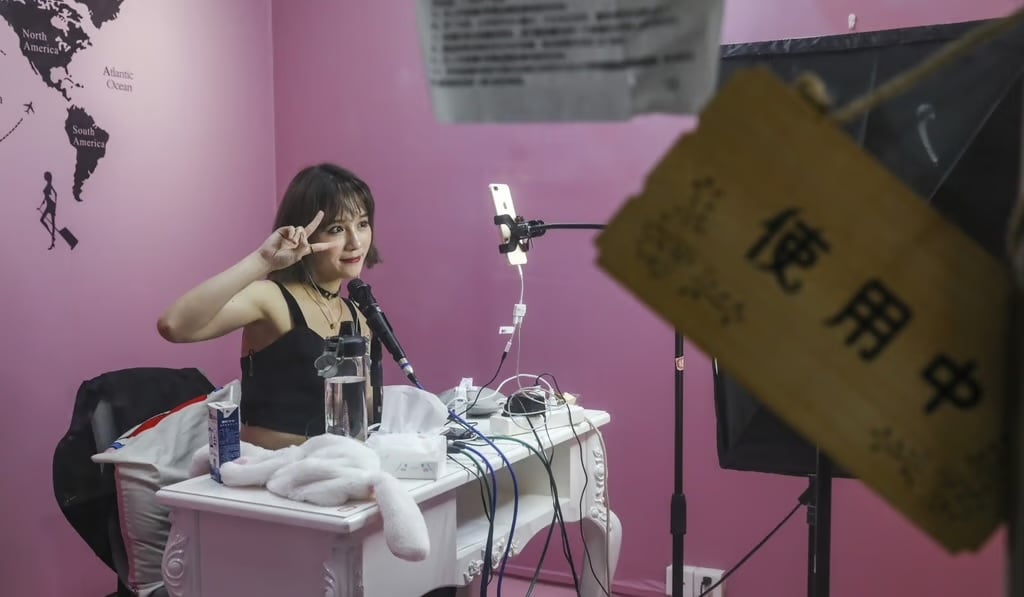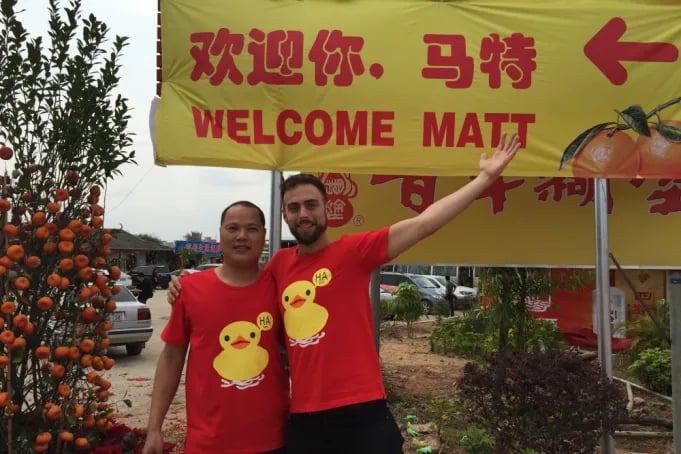Last week, Central Saint Martins’ fashion and textiles course published student works on Instagram Stories that caused a firestorm among both leading Chinese fashion designers and some of the country’s online population.
According to CSM, the work was a series of student banners made as part of a project with artist Damien Poulain, designed to address social issues such as “climate change,” “consent,” and “fast fashion.” One shared banner read “Fuck Fast Fashion” above the words “Made in China £0,” while another was interpreted by some as advocating for Hong Kong independence.

A screenshot of CSM’s Instagram Stories featuring one of the controversial banners (image: Weibo)
The program apologized afterwards via Instagram Stories, saying the posts were taken “out of context.”
A number of the school’s high-profile Chinese graduates — including Angel Chen, Chen Xuzhi, and Hong Kong-born designer Percy Lau — signed an open letter to their alma mater, saying that the banners were “racist” and an “outrageous slander” towards Chinese fashion creatives, and that by publishing the the stories with “high five” emojis on social media, CSM appeared to endorse the messages. “Why don’t you think about how to respect China,” wrote Chen on her WeChat Moments, “when your alma mater is recruiting more Chinese students and collecting their money?”
The letter also demanded a more official apology, which the design school gave a day later, saying they would “learn the lessons from this,” according to WWD.
Even designers that didn’t graduate from CSM got involved. London-educated designer Chen Peng took to his official account on Weibo to comment on the controversy. “Today ‘Made in China’ already meets international standards,” reads the post, “and brands that make showroom orders abroad all know this.”

Chen Peng Studio comments on the controversy (image: Weibo)
In 2019, fashion has been the crux of widespread debates about Chinese identity, politics, and representation abroad. International brands recently landed in hot water for listing Hong Kong and China as separate countries. And earlier this year, Chinese models featured in international fashion campaigns and publications sparked debate about Chinese beauty and “the Western gaze.”
Related:
 International Brands in Hot Water for Listing China, Hong Kong, and Taiwan as Separate CountriesChinese netizens are lambasting international brands for listing China, Hong Kong, Macau, and Taiwan as separate countries on products and websitesArticle Aug 13, 2019
International Brands in Hot Water for Listing China, Hong Kong, and Taiwan as Separate CountriesChinese netizens are lambasting international brands for listing China, Hong Kong, Macau, and Taiwan as separate countries on products and websitesArticle Aug 13, 2019
(By no means has this debate been limited to fashion, either. Last month, Chinese netizens urged a boycott of the Houston Rockets after the basketball team’s GM tweeted support for demonstrations in Hong Kong.)
Feeling increasingly betrayed by overseas brands, it’s no surprise that many Chinese consumers are now reaching for the “made in China” label — and defending it from criticism.
Related:
 How “Made in China” Fashion Got Its Groove BackA mix of nationalism, nostalgia and the wide reach of influencers is giving the “made in China” label a faceliftArticle Oct 14, 2019
How “Made in China” Fashion Got Its Groove BackA mix of nationalism, nostalgia and the wide reach of influencers is giving the “made in China” label a faceliftArticle Oct 14, 2019


















